Five Heating and Cooling Repair Tips
Of all the joys of homeownership, heating and cooling repair is not exactly in the top five on the list. In fact, for most homeowners, HVAC repair would rank somewhere around having a root canal and paying taxes. While it would be nice to have an HVAC repair specialist at your beck and call 24/7, the fact is that most people don’t have that luxury, which is why these five tips can help keep your HVAC system in tip-top shape.
Ducts, Filters, Blowers – Oh My
One of the best tips for keeping heating and cooling repairs down is to check ducts, filters, blowers and coils for obstructions. In order for an HVAC system to work properly, air must move effectively and efficiently. When ducts or blowers become blocked, air cannot move freely through them, reducing the efficiency of the system. Obstructions on coils, can cause them to malfunction as well. Obstructions can include just about anything, including dust, the balloon your son got for his birthday that suddenly vanished, or the pet hamster that escaped from his cage last winter and who may have found his way to the heater coil.
Leaks or Pooling Water
Leaks or pooling water around your air conditioning unit may send the average homeowner into a frenzy of panic, thinking that the unit has developed a terminal illness. In most cases, pooling water around the unit indicates that the drain pan from the evaporator coil is overflowing due to a blocked drain line, a fairly simple heating and cooling repair job. Use a long wire to clear blockages near the opening. If that does not clear the blockage, contact your HVAC repair company and stop using the unit until it can be serviced.
Cracks or Broken Sealant
Cracks or broken seals around your furnace or air conditioning system could reduce the air quality in your home. Therefore, one important step to take when performing regular heating and cooling repair is to check for cracks or broken sealants on the furnace and air conditioning system. If any are discovered, contact your HVAC repair company.
Remove Debris
Although outdoor air conditioning units are not exactly lawn ornaments, avoid planting trees and bushes around them as leaves, sticks and other debris can clog the system. In addition, plants surrounding the unit can restrict airflow, causing the unit to work harder than it has to and reducing its life expectancy. Be sure to remove any leaves or branches that fall on the unit to protect it from clogging. Remember, it is not the air conditioning unit’s fault it is not shaped like a cute garden gnome.
These tips could help reduce your heating and cooling repair costs, but the best way to be sure your units are operating efficiently is by having it serviced twice each year. A home energy performance evaluation is another way to not only reduce your home energy costs, but to reduce your HVAC repair costs as well. For more information, or to schedule a Home Comfort and Energy Test, visit spencerairconditioning.com today. You can also connect with us on Facebook, Twitter, LinkedIn and YouTube.
having a root canal and paying taxes. While it would be nice to have an HVAC repair specialist at your beck and call 24/7, the fact is that most people don’t have that luxury, which is why these five tips can help keep your HVAC system in tip-top shape.
Ducts, Filters, Blowers – Oh My
One of the best tips for keeping heating and cooling repairs down is to check ducts, filters, blowers and coils for obstructions. In order for an HVAC system to work properly, air must move effectively and efficiently. When ducts or blowers become blocked, air cannot move freely through them, reducing the efficiency of the system. Obstructions on coils, can cause them to malfunction as well. Obstructions can include just about anything, including dust, the balloon your son got for his birthday that suddenly vanished, or the pet hamster that escaped from his cage last winter and who may have found his way to the heater coil.
Leaks or Pooling Water
Leaks or pooling water around your air conditioning unit may send the average homeowner into a frenzy of panic, thinking that the unit has developed a terminal illness. In most cases, pooling water around the unit indicates that the drain pan from the evaporator coil is overflowing due to a blocked drain line, a fairly simple heating and cooling repair job. Use a long wire to clear blockages near the opening. If that does not clear the blockage, contact your HVAC repair company and stop using the unit until it can be serviced.
Cracks or Broken Sealant
Cracks or broken seals around your furnace or air conditioning system could reduce the air quality in your home. Therefore, one important step to take when performing regular heating and cooling repair is to check for cracks or broken sealants on the furnace and air conditioning system. If any are discovered, contact your HVAC repair company.
Remove Debris
Although outdoor air conditioning units are not exactly lawn ornaments, avoid planting trees and bushes around them as leaves, sticks and other debris can clog the system. In addition, plants surrounding the unit can restrict airflow, causing the unit to work harder than it has to and reducing its life expectancy. Be sure to remove any leaves or branches that fall on the unit to protect it from clogging. Remember, it is not the air conditioning unit’s fault it is not shaped like a cute garden gnome.
These tips could help reduce your heating and cooling repair costs, but the best way to be sure your units are operating efficiently is by having it serviced twice each year. A home energy performance evaluation is another way to not only reduce your home energy costs, but to reduce your HVAC repair costs as well. For more information, or to schedule a Home Comfort and Energy Test, visit spencerairconditioning.com today. You can also connect with us on Facebook, Twitter, LinkedIn and YouTube. 



